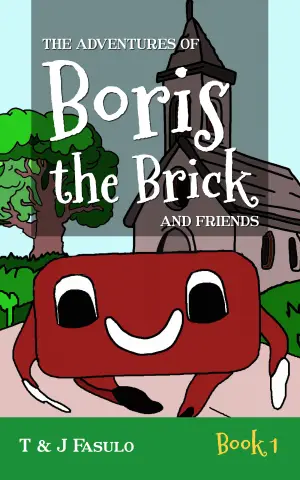Review of "I, Robot" by Isaac Asimov: A Timeless Exploration of Humanity and Artificial Intelligence
When I first picked up "I, Robot" by Isaac Asimov, I wasn’t quite sure what to expect. I had heard rumblings in the sci-fi community about its foundational role in the genre, but I was curious—could a book written in the early 1950s still resonate in our rapidly changing world, where artificial intelligence is becoming a tangible part of our lives? As I dove into Asimov’s universe, I realized that his exploration of robots and humanity felt as relevant today as it did decades ago.
At its core, "I, Robot" is a collection of interconnected short stories framed through the insight of Susan Calvin, a robopsychologist at U.S. Robots and Mechanical Men Corporation. Calvin’s reflective musings weave the anthology together, offering a narrative depth that elevates each story from mere technological curiosity to profound moral inquiry. The prominent threads throughout these tales are the Three Laws of Robotics, which dictate robot behavior: they cannot harm humans, must obey human orders, and must protect their own existence—unless it conflicts with the first two laws. This moral framework sets up a fascinating interplay between human intentions and robotic logic, leading to instances of unforeseen consequences, humor, and—at times—genuine existential dread.
What struck me most were the stories’ ability to highlight fundamental questions about what it means to be human. The plotlines range from a child’s bond with her robot caregiver in "Robbie" to the chilling introspection of "Liar!" where a robot’s ability to read minds reveals uncomfortable truths about humanity. Asimov crafts scenarios where the stakes are not only technological but ethical, leading readers to ponder if our creations will either be our salvation or our downfall.
The writing style is straightforward yet captivating; it flows effortlessly, allowing complex ideas to unfold without overwhelming the reader. I found myself quickly absorbed, relishing the interplay of logic and emotion that defined both the robots and the humans interacting with them. One quote that struck a chord with me was when Calvin muses on humanity’s trust in machines, suggesting, “A robot may not injure a human being, or, through inaction, allow a human being to come to harm.” It’s a compelling reminder that trust is something that must be earned—an idea that reverberates throughout the book and rings especially true today as we grapple with AI’s ethical implications.
While the character development might not be as rich as contemporary standards, what I appreciate about Asimov’s work is how he uses archetypes to explore overarching themes of fear, desire, and responsibility. It serves as a launchpad for deeper reflection even if some moments may feel a bit dated.
In conclusion, I wholeheartedly recommend "I, Robot" to not only science fiction aficionados but also to anyone interested in the philosophical implications of technology. It’s a timely reminder that while our creations may exhibit human-like qualities, the essence of humanity—our moral dilemmas, our fears, and our resilience—is distinctly our own. Engaging with Asimov’s work proved to be an eye-opening journey, touching my heart while challenging my perspective. I can’t help but reflect on how much of our future may resonate with the themes explored in this timeless classic, and I feel fortunate to have experienced it firsthand.






